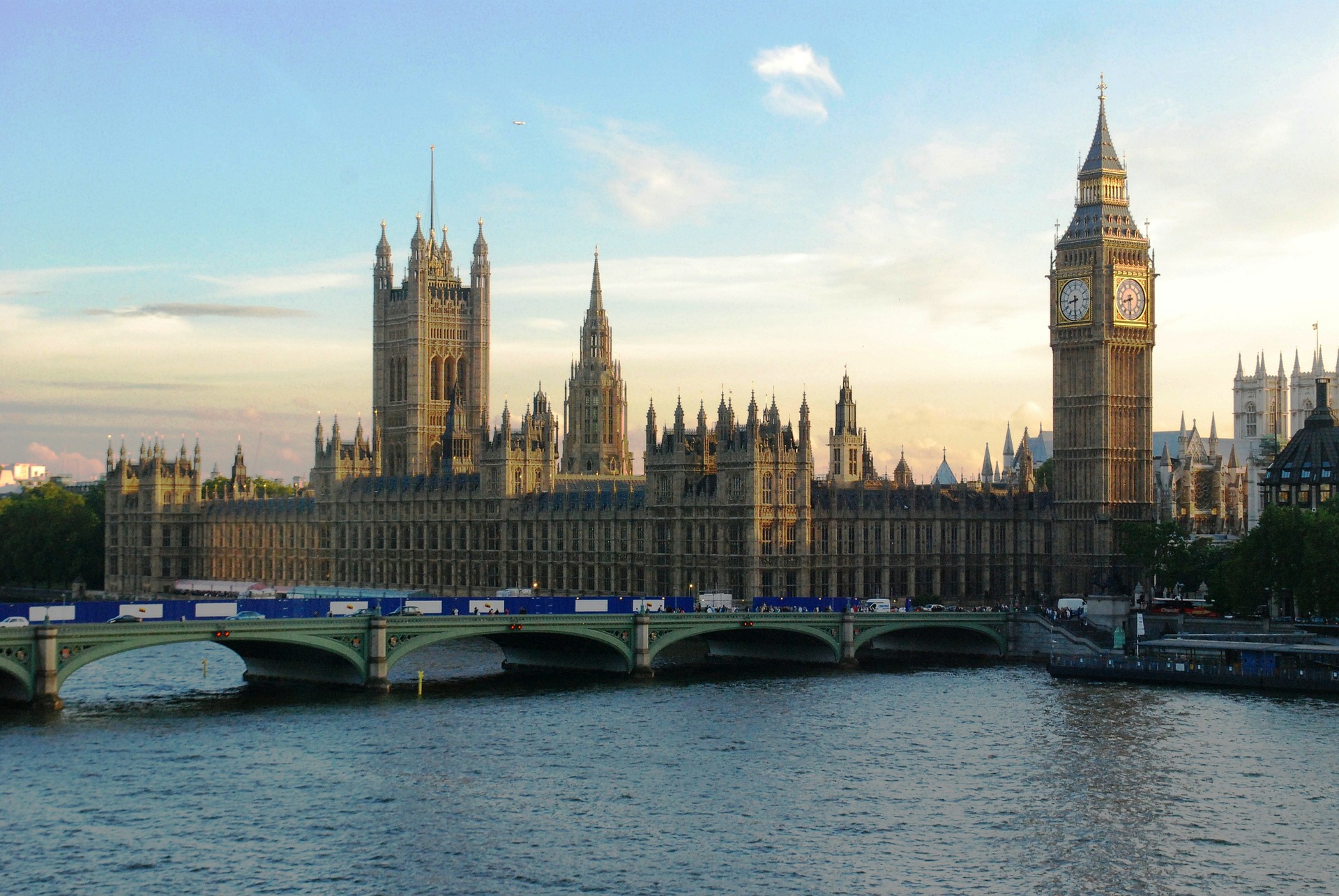
Clear the Lobby: What laws are MPs voting on this week (w/c 9th December)?
December 8, 2019
Politics v The Media: how the law has been involved in the 2019 election campaign
December 12, 2019The round-up of the stories that a budding Student Lawyer should be aware of this week. Sign up here to get these updates in your inbox every week.
The effects of Black Friday and fast-fashion
Article by Beth Zheng, second year law student at Durham University.
This year’s Black Friday weekend lasting from Friday 29th November 2019 to Monday 2nd December 2019 saw a huge influx of deals and trading, with stores offering big one-time offers in their efforts to attract consumers to buy their products. Originally from the US, Black Friday has taken the world by storm as the day is eagerly anticipated for both retailers and customers. This year, sales were at a record high, with Barclaycard reporting that the value of transactions increased by 16.5% compared to 2018. The reason for this year’s influx may be due to the fact the 29th of the month actually coincided with payday for many employees.
Statistics show that not only did the volume of spending increase by 7.14%, but the actual value of sales also increased. This comes as good news to retailers who are in a competitive market with the growing surge of brands who only operate online, thus reducing their administrative costs. Recently, the gradual collapse of department store House of Fraser, and Debenhams’ fall into administration reflected the fact customers preferred to shop online through the ease of the Internet rather than go in store. In the US, based on the record $9.4 billion that was spent online by the end of Cyber Monday, almost 33% of those transactions were through a mobile device. Target was hugely successful in the sales, with an increase of 90% in its shares whilst Macy’s shares actually decreased by 50%.
Department stores and high street retailers are finding it difficult to compete against the fact online brands can easily move through trends. For example, the likes of Boohoo and ASOS are able to quickly react to consumer needs.
However, the flexibility of fast fashion and ability for brands to manufacture products with such speed is not without criticism. Environmentalists are quick to point out the devastating consequences of mass fast fashion production where the industry is actually the second largest polluter in the world, following the oil industry. Not only this, but there is also a greater social demand to ensure workers are being treated fairly and work in suitable conditions. As an industry that continues to grow at an alarming rate, brands are continuously targeted and held to high standards in order to reduce their environmental impact through the use of recycled materials. ASOS has begun to do this through their sustainable clothing brand, Collusion, and has even expanded their ‘marketplace’ feature, which allows second-hand clothing to be sold.
Whilst the Black Friday sales have strengthened the economy and shown retailers that this time to buy is as popular as ever, the trends are clear. Shoppers are not only resorting to online functions to purchase goods, but online brands themselves are more profitable due to their adaptability in the agile environment. Nevertheless, the environmental impact of the work of fast fashion brands is continually under close inspection and should be regulated with great care.
You can read more here.
The new digital tax in France and US tensions
Article by Gina Asadi, recent BPP LLM Legal Practice (Solicitors) graduate.
Last year, the European Union proposed introducing a 3% ‘tech tax’ on digital companies. This tech tax would catch large digital companies, with revenues higher than $832 million; and apply to their revenues generated in the Eurozone, rather than just their profits. After a lengthy debate, the tech tax was abandoned. However, this did not eliminate the possibility of Member States taking matters into their own hands and implementing it anyway.
Fast forward a year, the French government in July 2019 approved a 3% tech tax on companies’ local sales rather than their profits. The French tech tax will apply to large tech companies with global sales over €750 million (£674m) and French sales of more than €25 million (£22.5m). The implementation of the new tax is projected to raise €400 million (£360m) for the French government.
This move comes following a string of accusations that global tech companies are finding ways to avoid tax; they are doing so by paying taxes in the EU where they have headquarters, rather than where they make their sales. These companies will strategically have offices in countries such as Ireland or Luxembourg, with lower tax rates. For instance, Amazon came under fire for its 2017 tax bill of £1.7 million for its £2 billion turnover in the UK.
The introduction of the French tech tax has prompted US President Donald Trump to order an investigation into the new legislation, arguing that it ‘unfairly targets American companies’. The investigation will look into the effects of the tax on US companies to ascertain whether it unfairly discriminates or restricts US corporates.
The US’ investigation was concluded in early December 2019 and found that the tax is ‘inconsistent with prevailing principles of international tax policy, and is unusually burdensome for affected US companies’. As a result, the US has now threatened to impose tariffs on French products imported into the US; including champagne, sparkling wine, Roquefort and other cheeses, make-up, handbags and homeware products. For a full list of tariffs, click here. Some of the tariffs are as high as 100% and will result in higher prices for US customers. The French government has promised to retaliate against these tariffs. As a consequence of the tensions, LVMH, French producer of Moët champagnes and Louis Vuitton handbags, saw its stock price take a hit following the announcement of tariffs.
Further, the US tariffs are also seen as a threat to other European countries considering adopting a tech tax. The tensions between the US and France, and potentially Europe, could lead to a trade war which could have adverse effects on European manufacturers. With other European Union countries considering adopting a similar tech tax; for instance, the UK Prime Minister, Boris Johnson, and Labour leader, Jeremy Corbyn, have been backing the idea of a digital sales tax. However, considering the US’ response to the French tax, the future of other countries supporting France and imposing digital sales taxes remains unknown.
Read more here, here, here and here.
Tesla chooses Berlin instead of the UK to build gigafactory
Article by Victoria Roffey, guest contributor from STRIVE Consultants.
Tesla, Elon Musk’s electric-driven unicorn, has this week announced it is to build a gigafactory in Berlin. Beginning in 2021, Tesla Model 3 and Model Y cars will be produced in a factory neighbouring the site of a new airport in Grünheide. The decision by Tesla to commence production on the continent, at a reported cost of €4 billion, is influenced by Brexit. Musk, on the date of his announcement, told Auto Express that Brexit had made it ‘too risky’ to invest in Britain.
By choosing Germany as a site for production, Tesla is expected to encounter employment and real estate challenges. Tesla’s announcement also has the potential to increase competition within German automotive manufacturing.
Of the 6.2 million German workers employed in manufacturing, 2.2 million are members of IG Metall (Germany’s biggest labour union). However, anti-union sentiment has been pervasive within the management of Tesla’s Fairmont (USA) factory. In May 2018 Musk tweeted his distaste for unions – ‘But why pay union dues & give up stock options for nothing? Our safety record is 2X better than when plant was UAW & everybody already gets healthcare’. This position follows a judgement (in California) that Tesla had acted illegally in attempting to suppress the endeavours of workers to form a union. Tactics used to dissuade attempts to form a union included harassing those promoting the union, banning pro-union clothing from the factory, and firing an employee involved with promoting unionisation. As approximately one-third of manufacturing workers are in unions in Germany, Tesla’s previous stance appears unsustainable within this new market.
The proposed site for Tesla’s first European factory is in the hamlet of Grünheide. To create the space required for their new site, a significant portion of the forest surrounding the village will need to be cleared. In 2001, a planned BMW site in the village, which required acres of forest to be razed, received such strong local opposition that plans were shelved. Therefore, there is a precedent that Tesla’s proposed site could incur fierce local opposition as residents protest for the maintenance of their forest.
Tesla is considered the market leader concerning electric vehicles – the Tesla Model 3 was the UK’s third bestselling car in August 2019. Despite market dominance, Tesla’s choice to place their new Gigafactory in Germany has been interpreted as a direct challenge to prestige German manufacturers Audi, BMW, and Volkswagen. The move has been described by Jan Burgard as ‘challenging Germany’s automakers to a duel right in the front of their own castle gate’. Tesla plans to create 10,000 jobs associated with their new factory, while the industry at large predicts that approximately 426,000 jobs are at risk as the automotive industry goes electric. Furthermore, while Volkswagen plans to produce 22m electric cars annually by 2028 (a figure that vastly outstrips the 97,000 cars manufactured by Tesla in the third quarter of 2019) Tesla have startled the German market with their announcement. Tesla shares were up 0.7% after the announcement to produce cars in Germany, with the announcement also being credited with bringing German manufacturers ‘sitting in their own diesel la-la-land’ back to earth.


